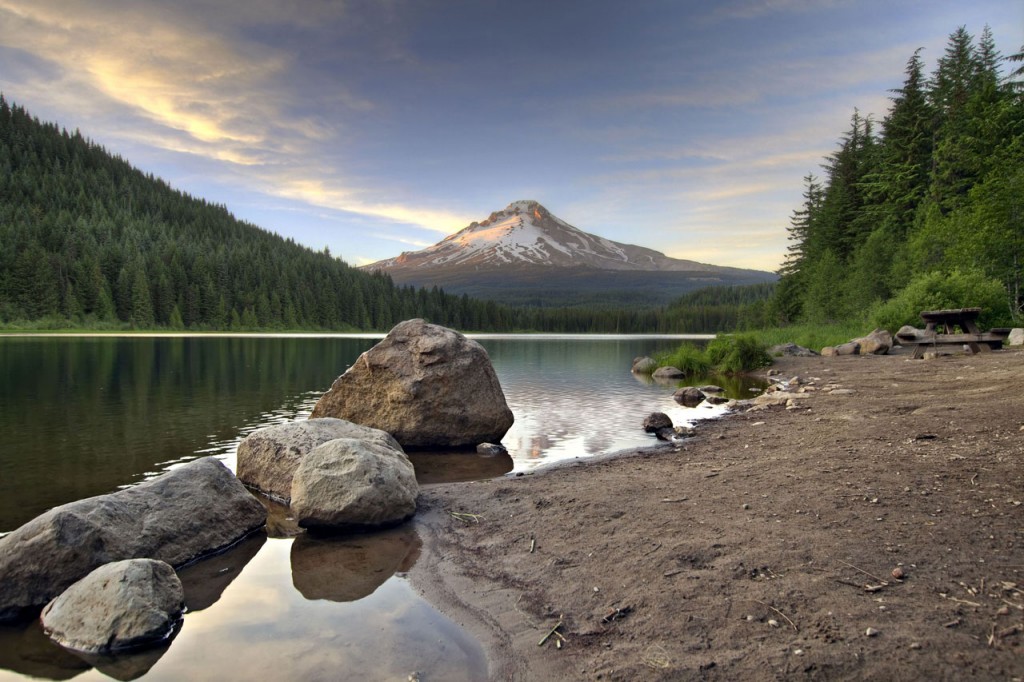Truly epic in its breadth, Oregon’s landscape is diverse and dramatic. A broad deep-green swath, lush with farmland and studded with old-growth Douglas firs, runs between the rugged Pacific coast and the volcanic peaks of the Cascades. Further east, you’ll find high desert, alpine mountains, and deep river canyons — spectacular country that’s largely unexplored by visitors.

View of Mount Hood from Trillium Lake. Photo © davidgn/123rf.
What helps make Oregon unique is the attitude of its citizens, who are fiercely proud of their state, its culture, and its open spaces.But Oregon is much more than a scenic abstraction. In few places has human civilization meshed so agreeably with the natural environment. What helps make Oregon unique is the attitude of its citizens, who are fiercely proud of their state, its culture, and its open spaces. Equal to the great outdoors, the arts are cherished and draw crowds by the multitude. The state also celebrates its historical heritage, ethnic makeup, and straightforward high spirits with a thousand festivals. And the food? Much of Oregon is a huge garden where vegetables, fruit, wine grapes, and farm and ranch products reach perfection. Mighty rivers and 360 miles of Pacific coast provide shellfish, salmon, tuna, and halibut.Whether it’s “three days and four plays” at the Oregon Shakespeare Festival in Ashland, shopping for wild morel mushrooms at the Sisters farmers market, dueling pinot noir tastings in Carlton, or kite-boarding near Hood River, you’ll find that Oregonians engage with everyday life with a verve that’s at once intensely local yet tied to a larger, more universal perspective. In Portland, where “organic” and “local” are assumptions, not exceptions, life is rich with the culture and cuisine options of a cosmopolitan center, yet comfortable and cozy like a small town.
Oregonians tell a fable about a crossroads on the old Oregon Trail. Pointing south toward the California gold fields was a sign with a drawing of a bag of gold. Pointing north was another sign with the words “To Oregon.” The punch line? Only those pioneers who could read continued to Oregon.
Of course, the Oregon Trail is history now, but that doesn’t mean that the movement to Oregon is over. The same vaguely agrarian and utopian ideals that drew the pioneers still work magic on a new crop of immigrants eager to move to the Beaver State to open a restaurant, start a software company, or simply seek the good life and a pint of micro-brewed beer.